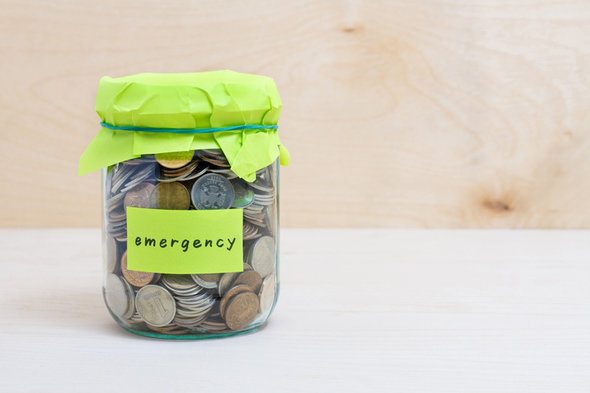
Time and time again, financial advisors discuss the importance of having an emergency fund. No one wants to be surprised by an unexpected trip to the hospital or the car repair shop. If you’re not good at saving money, you may be wondering whether you can use a HELOC as an emergency fund. Turns out, you can. Whether that’s a good idea, however, remains debatable. If you’re looking for creative investment strategies or answers to whether this is a good idea for your finances, consider working with a financial advisor.
What Is a HELOC?
A HELOC (or a home equity line of credit) is essentially a second mortgage on your home. HELOCs give homeowners the opportunity to tap into their home equity and borrow against the value of their homes at any given time, after approval. They essentially work like credit cards, but they can be much riskier. If you can’t pay off your HELOC, you could lose your house because your house is what secures the line of credit.
Anyone with a HELOC will have a draw period, or a set number of years to withdraw funds from their line of credit. When you borrow money during this period, you are required to pay interest. Once it ends, you’ll be responsible for paying back whatever you borrowed, plus interest. You only pay back what you borrow, plus interest. If you get approved or a HELOC but never use it then you won’t be required to pay anything back.
How to Use a HELOC as an Emergency Fund

If you’re eligible for a line of credit, you may be able to borrow money as needed for up to 10 years. That may be helpful when you need to cover the cost of an unexpected expense. If you need access to additional funds, you’ll need to pay off at least a portion of what you borrowed in order to increase the amount of credit that’s available to you.
To use the HELOC as an emergency fund all you would need to do is to make sure that you’ve been approved for a HELOC and then leave the approved funds without using them. This gives you a credit line that you can pull from at any time until the time period runs out, and you would only borrow if you hit an emergency.
While a HELOC might be a good opportunity to get access to cash that is approved from the equity in your home, it’s likely best if you find a way to save emergency cash. Borrowing money in a HELOC can be timely but it also can be expensive, depending on what you’re using the money for.
The Pros and Cons of Using a HELOC as an Emergency Fund
Using a HELOC as an emergency fund can make sense for the right situation, especially if you fall on hard times unexpectedly, but it can also be risky. Here are the biggest pros and cons of using your HELOC in this manner.
Pros
- Using a HELOC as an emergency fund could make sense if you need fast cash as saving thousands of dollars could take years. But through a HELOC, you could have access to up to 85% of your home’s appraised value within a matter of days.
- HELOC interest rates are usually lower than the rates tied to credit cards. That’s another reason why using a HELOC during an emergency could be a good idea. What’s more, even though you’ll have to pay interest every month, your interest may be tax deductible up to $100,000 (if you’re using the funds for a variety of purposes).
- Once approved, you can draw the funds in the future without having to go through the approval process during your actual emergency. This comes in handy if you need the funds because of a lost job, which could prevent you from being approved at that point.
Cons
- Most HELOCs come with variable interest rates. If rates fluctuate and rise too high, you may have a hard time paying off your interest. F
- Your bank or private lender may decide to cancel or reduce your line of credit without warning (particularly if the value of your home falls drastically in a short amount of time). Losing access to your HELOC could be devastating if you’re already facing a financial crisis.
- Using a HELOC as an emergency fund also means you’ll have to eventually pay back what you borrowed. That could be a problem if you have an unstable source of income or you don’t have much job security.
The Bottom Line
Whether you should use a HELOC as an emergency fund depends on your personal situation and your financial habits. Taking out a HELOC could be beneficial if you want another tax break or you need access to a large amount of cash in a short period of time. On the other hand, if you can’t afford to pay the fees and closing costs associated with HELOCs, you may be better off with a cash emergency fund.
Tips for Financial Management
- As you’re looking to create a financial roadmap, you may want to enlist the help of a financial advisor. Advisors can help you find the right balance of assets to invest in and help you find the right roadmap to reach your long-term goals. Finding the right financial advisor doesn’t have to be hard. SmartAsset’s free tool matches you with up to three vetted financial advisors who serve your area, and you can interview your advisor matches at no cost to decide which one is right for you. If you’re ready to find an advisor who can help you achieve your financial goals, get started now.
- One of the first steps to achieving financial freedom is to create the right budget. Using a budget calculator can help you figure out what you’ll need each month and in the event of an emergency.
Photo credit: ©iStock.com/GreenApple78, ©iStock.com/andresr, ©iStock.com/golubovy
